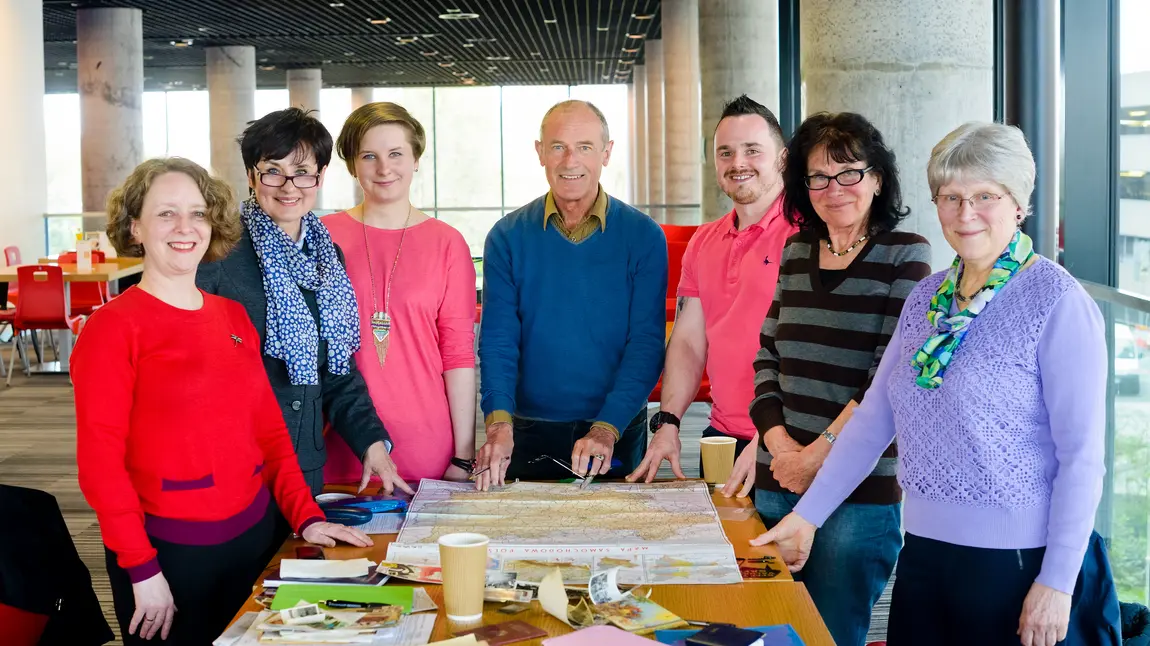Exploring and revealing the life stories of second generation Birmingham Poles

Last year the group was awarded a grant of £29,400 from the Heritage Lottery Fund (HLF) for its project, Fitting in and Getting Along: Integration and Identity for Birmingham’s British Poles. So far, the project has successfully captured the memories of 26 second generation Poles and a future exhibition and celebration event will share these stories.
The need for this project arises because of the absence of any equivalent initiative covering this significant population in Birmingham. Past attention has been focused more on immediate pre-war Polish resettlement in Britain and has thus far neglected the second generation, certainly within Birmingham. This project not only has significance for the Polish community, but also for Birmingham and for the wider society as it offers the potential for better understanding about settlement and integration.
From the early 1950s and onwards into the 1960s, Birmingham’s population saw the emergence of a substantial new group of young Poles. This population group is now moving towards their old age. A whole unique way of life has, so far, been undocumented. This generation are now in their 60s and 70s and it is probable that their memories would be lost if they were not recorded. This project has captured the various stories of this group of people and preserved this heritage and social history for future generations to understand.
The project has particularly focused on:
- The extent to which they became integrated into British society
- The extent to which they retained a separate Polish identity
- Describing the ways and means by which they went about these important issues in their lives
The first generation of Birmingham Poles came here as a result of forced migration and displacement from Poland as a consequence of the Second World War. This second generation was brought up hearing the stories of how Poland was before the events of 1939, the culture, language and traditions, the experiences of war, trauma and loss. This has had a profound effect on their cultural identity and the way of integration in to the host society.
The project has conducted detailed oral history interviews with 26 second generation Poles. It has aimed to cover not just cases of those children with two Polish parents, but also the children of 'mixed' couples. Matters focused on included: languages spoken at home, contact with Polish community organisations, church attendance, schools and education, friendships, food and diet, and choice of marriage/life partner.
There have been and in the future there will be a number of people benefiting from the project both through direct participation and as members of the public:
All the project volunteers have increased their skills through completion of training in: digital story creation; carrying out oral history interviews; archiving skills; and organising exhibitions
The exhibition, project booklet and the oral histories (which will be deposited in the Library of Birmingham and in Polish libraries) will give the public access to the information discovered by the project. Project volunteers will also use their archive skills training to create catalogues to explain the collections
An exhibition and community event will be delivered towards the end of the project. The exhibition will draw out the key findings of the project, with a particular emphasis on the oral histories
An illustrated book summarising the stories of the British Poles will be used as a resource for schools
A spokesperson from the MPCA, said: “We are convinced that with HLF support this project provides a unique opportunity to capture the memories of post-war British-born Poles and to examine the role of Polish and British cultural influences in their lives.”
Reyahn King, Head of HLF West Midlands, said: “Thanks to money raised by National Lottery players we’re pleased to fund this project which will tell the personal stories of an important part of Birmingham’s celebrated multicultural community.”
Notes to editors
About the Midlands Polish Community Association
The Midlands Polish Community Association (MPCA) is a not-for-profit organisation that was formed to help share information about Polish culture and traditions with the wider community.
The MPCA members promote social and cultural events and initiatives, and work to broaden cultural awareness and aid social integration in the Midlands and assist people who have emigrated from Poland and are currently living within the Midlands area to integrate into local society. As a self-funded voluntary group it aims to raise money to support and carry out a variety of activities.
Further information
Anna Cielecka-Gibson, MPCA, on tel: 0771970618; Maureen Smojkis, MPCA, on tel: 0121 414 8169; or via email: mpca2008@gmail.com